Resource Library
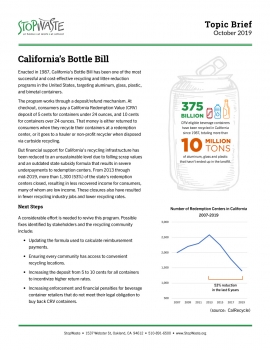 Topic Briefs
Topic BriefsEnacted in 1987, California's Bottle Bill has been one of the most successful and cost-effective recycling and litter-reduction programs in the United States, targeting aluminum, glass, plastic, and bimetal containers. But financial support for California's recycling infrastructure has been reduced to an unsustainable level due to falling scrap values and an outdated state subsidy formula
Read More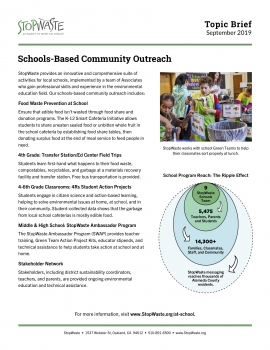 Topic Briefs
Topic Briefs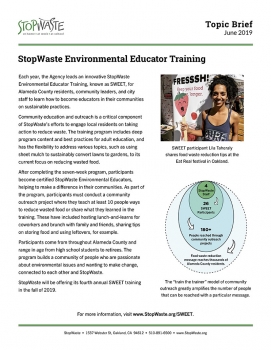 Topic Briefs
Topic BriefsEach year, the Agency leads an innovative StopWaste Environmental Educator Training, known as SWEET, for Alameda County residents, community leaders, and city staff to learn how to become educators in their communities on sustainable practices. Community education and outreach is a critical component of StopWaste’s efforts to engage local residents on taking action to reduce waste.
Read More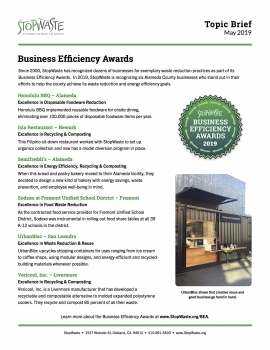 Topic Briefs
Topic BriefsSince 2000, StopWaste has recognized dozens of businesses for exemplary waste reduction practices as part of its Business Efficiency Awards. In 2019, StopWaste is recognizing six Alameda County businesses who stand out in their efforts to help the county achieve its waste reduction and energy efficiency goals.
Read More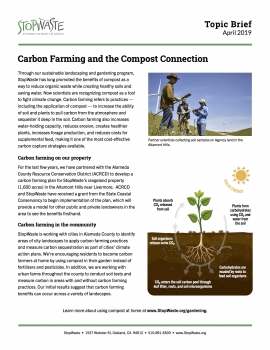 Topic Briefs
Topic Briefs Topic Briefs
Topic Briefs Topic Briefs
Topic BriefsStopWaste’s member agencies are working towards achieving significant reductions in greenhouse gas (GHG) emissions by 2030 and beyond. Through their climate action plans, local governments are increasingly addressing the upstream emissions from the production of goods used locally but produced elsewhere.
Read More Topic Briefs
Topic BriefsEndorsing a circular economy approach to waste reduction means moving away from recycling as the answer to managing materials, and moving to reusable items instead of single use and/or recyclable items. Reuse is considered “upcycling,” or extending the life of an item in its same form with minimal processing.
Read More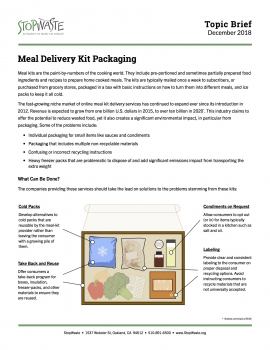 Topic Briefs
Topic BriefsMeal kits include pre-portioned and sometimes partially prepared food ingredients and recipes to prepare home cooked meals. The kits are typically mailed once a week to subscribers, or purchased from grocery stores, packaged in a box with basic instructions on how to turn them into different meals, and ice packs to keep it all cold.
Read More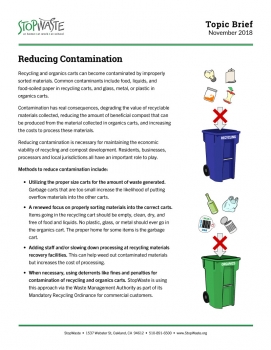 Topic Briefs
Topic Briefs